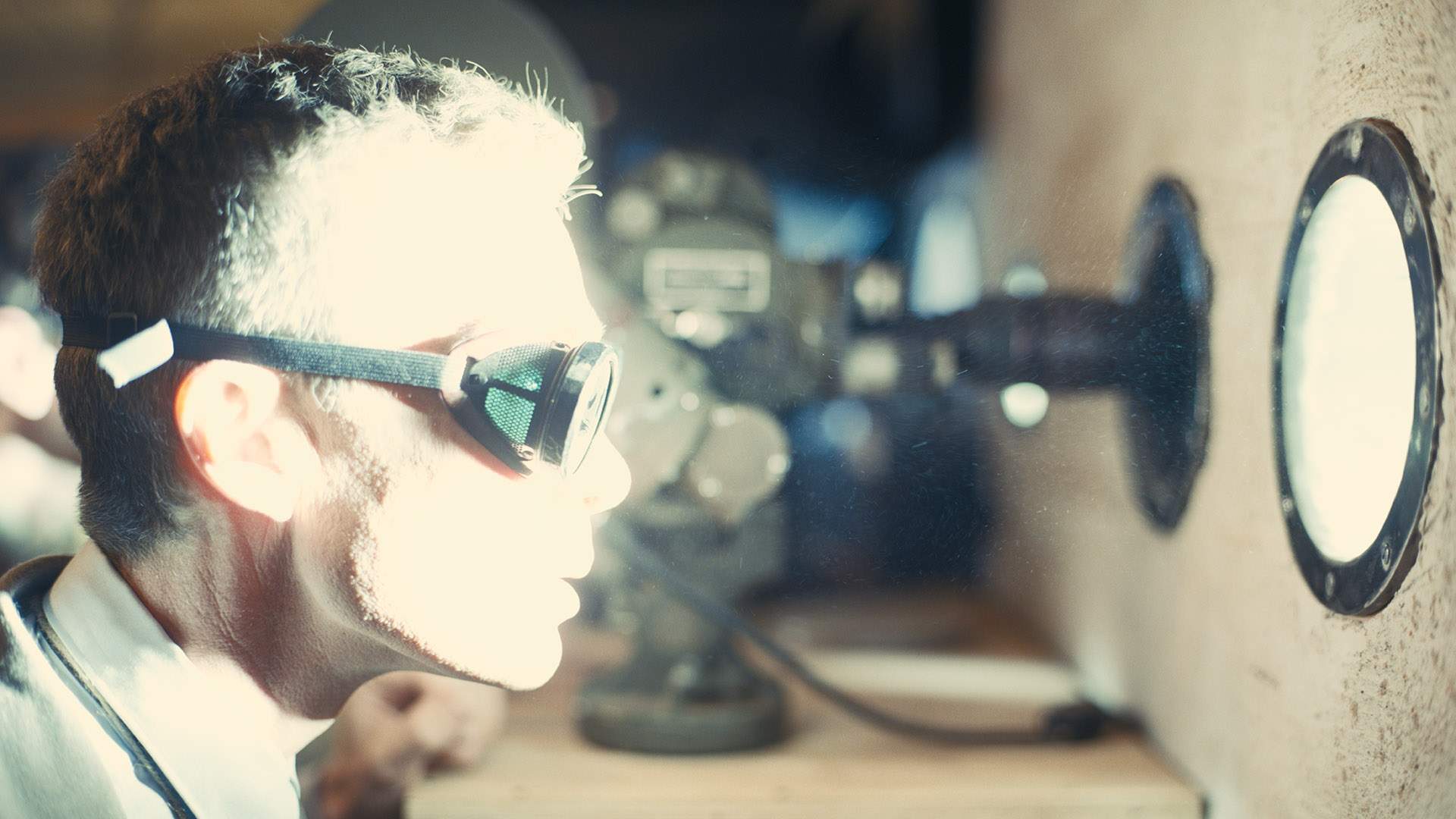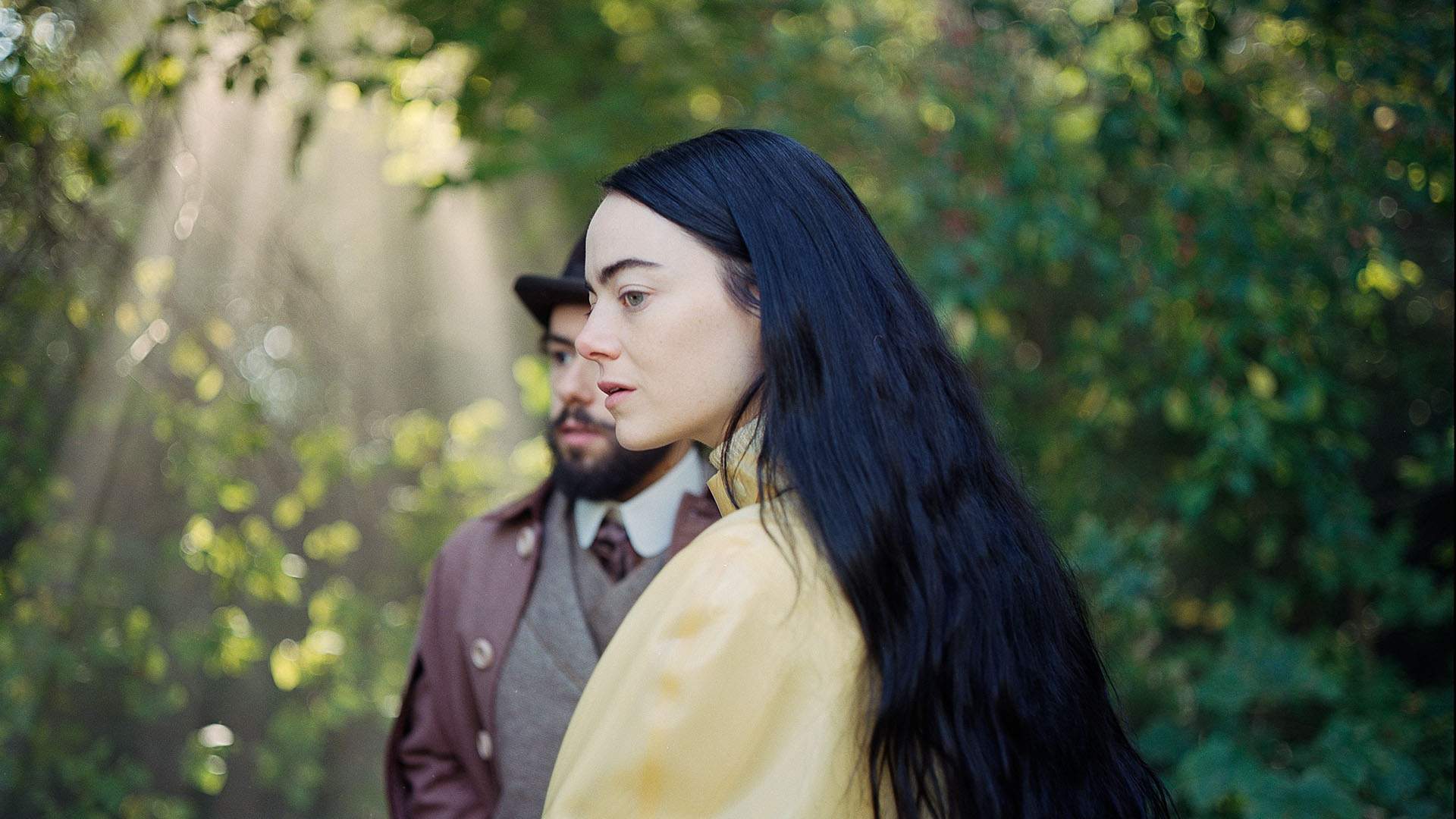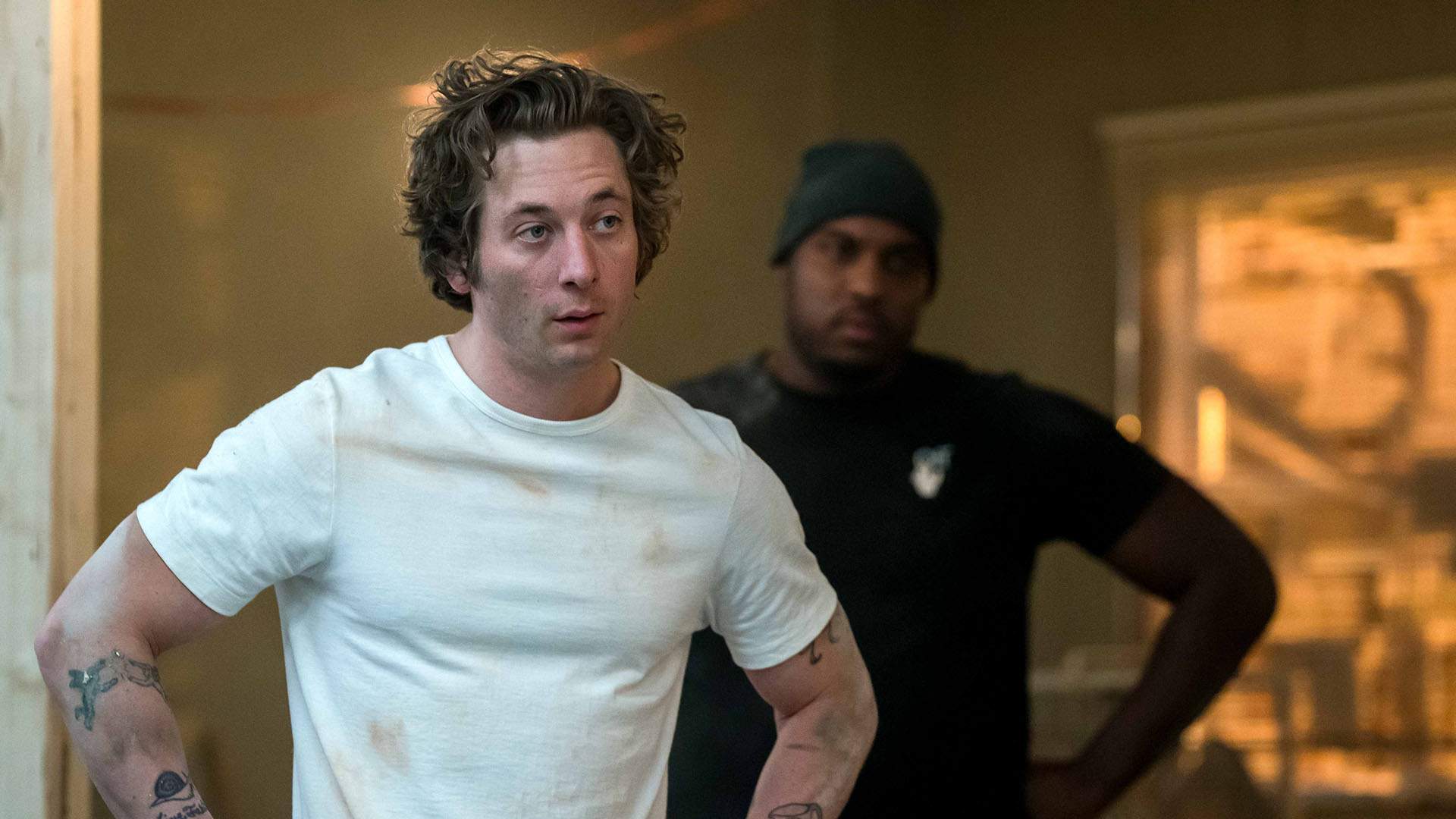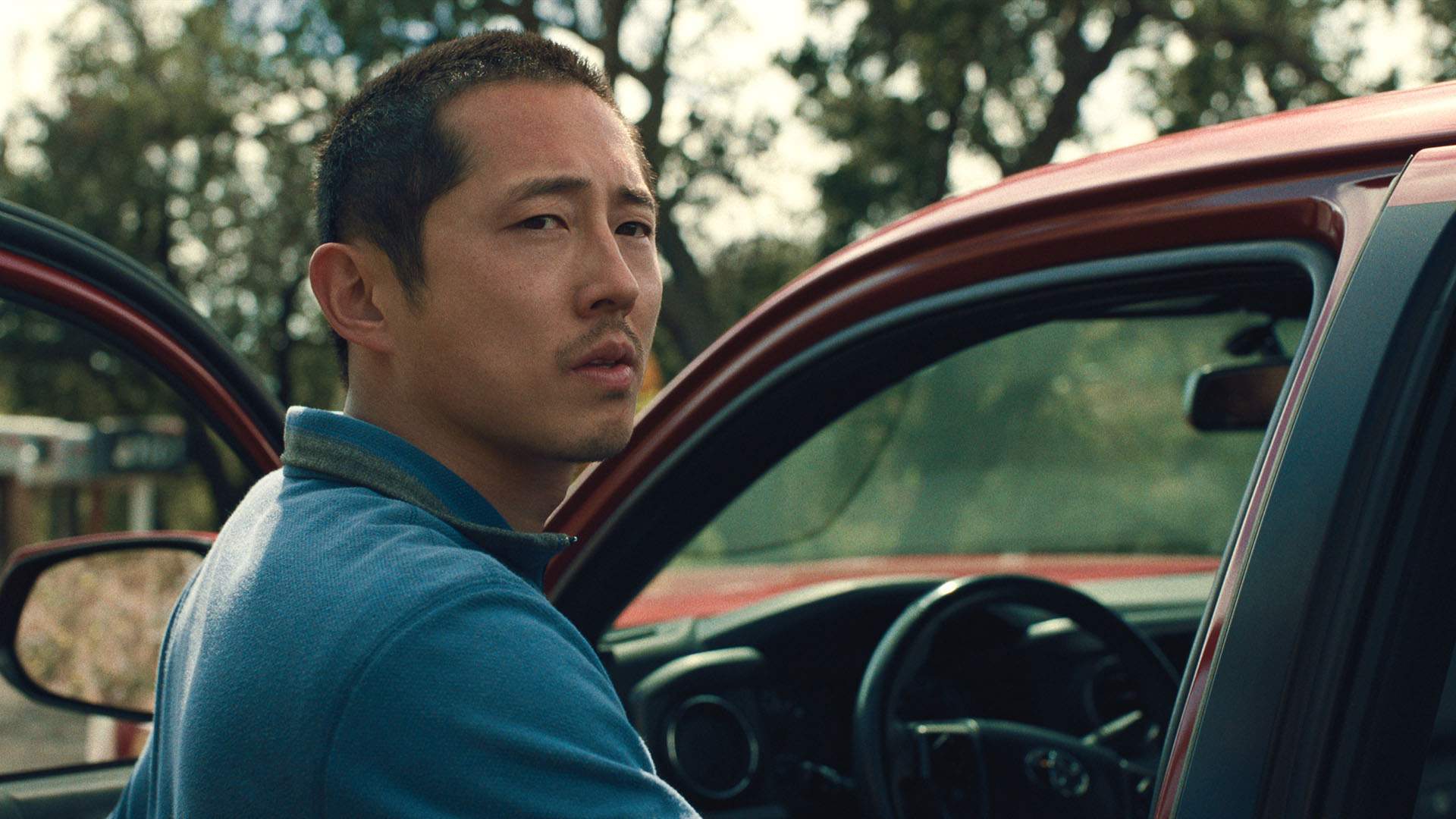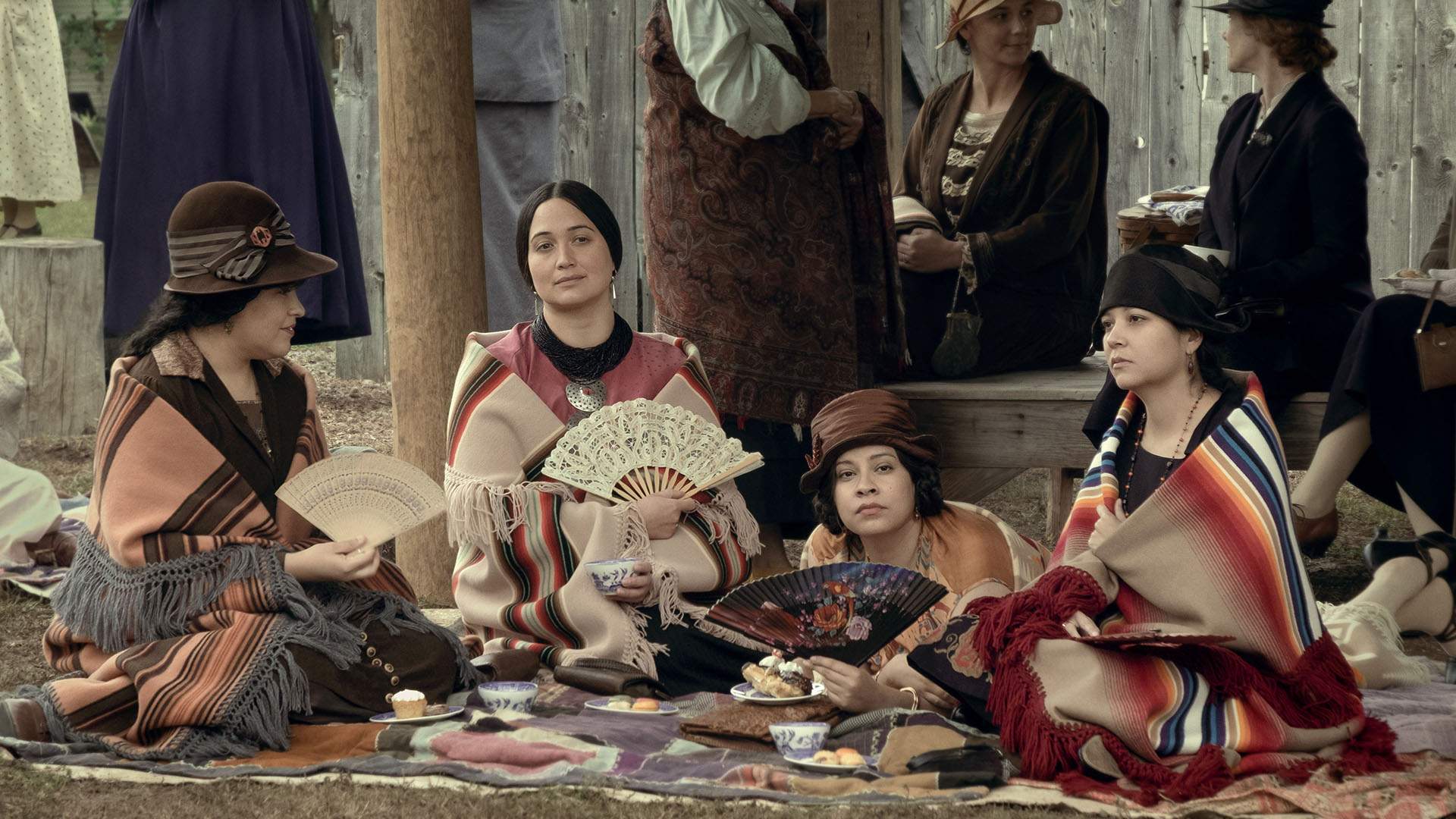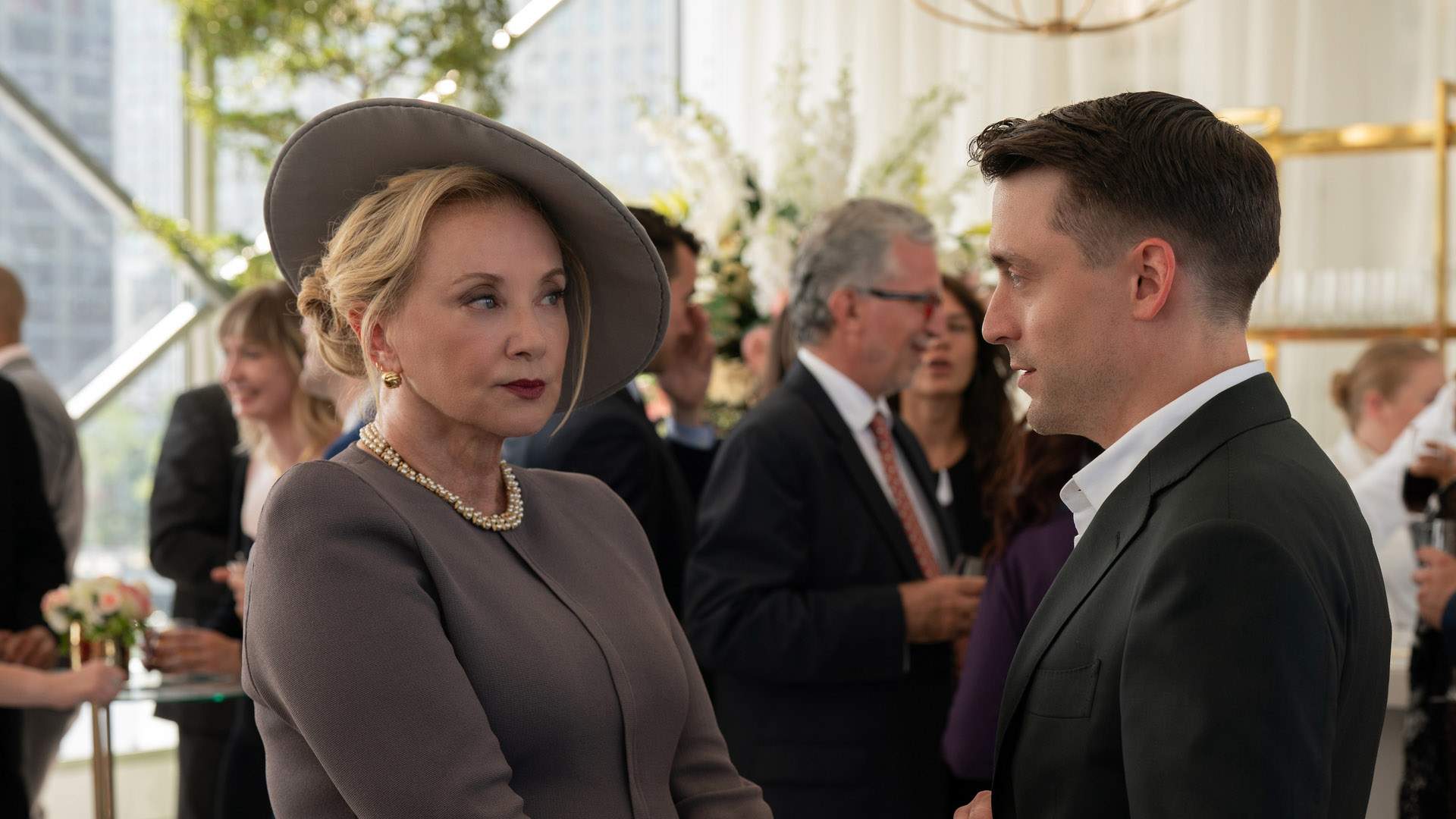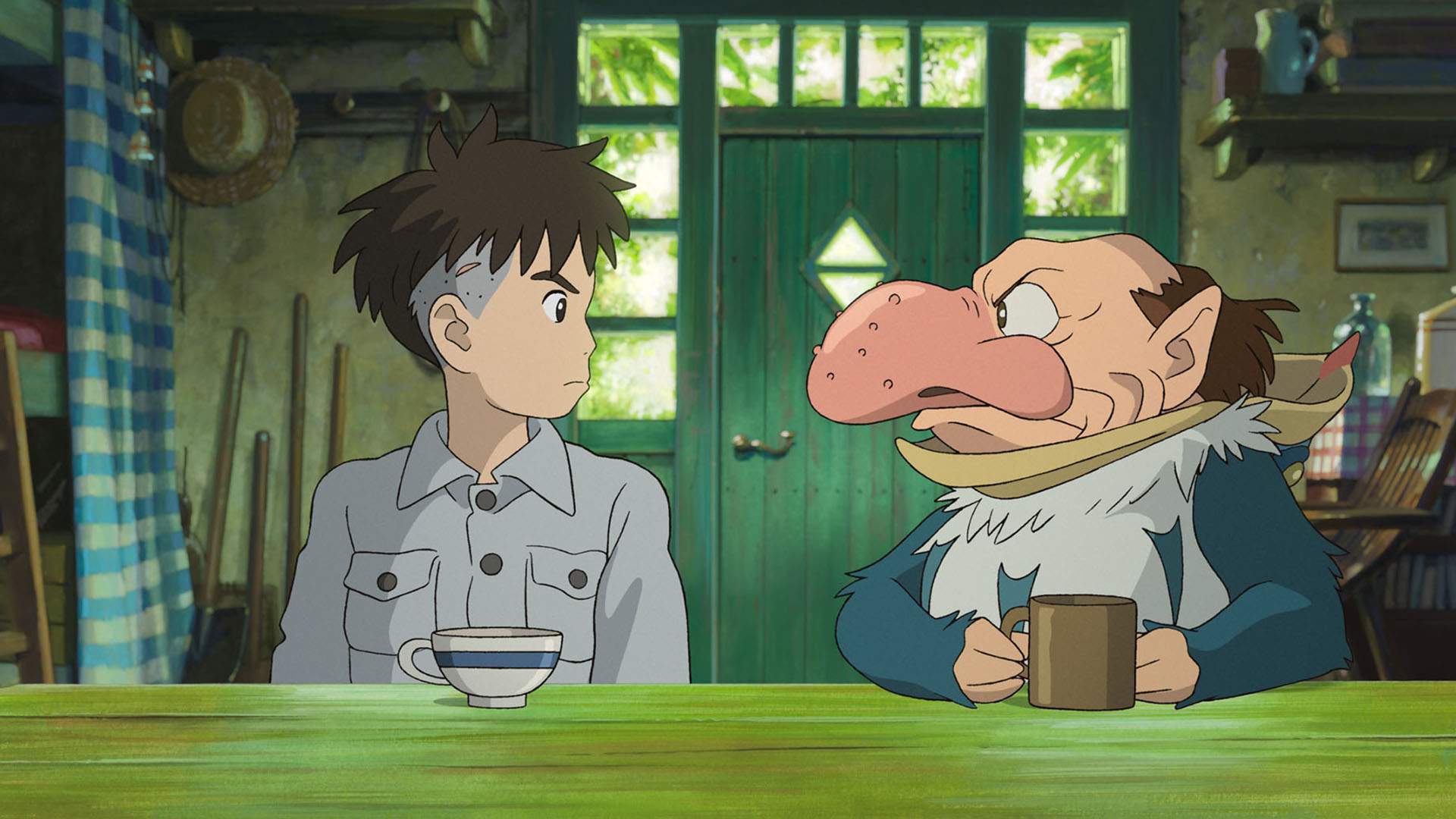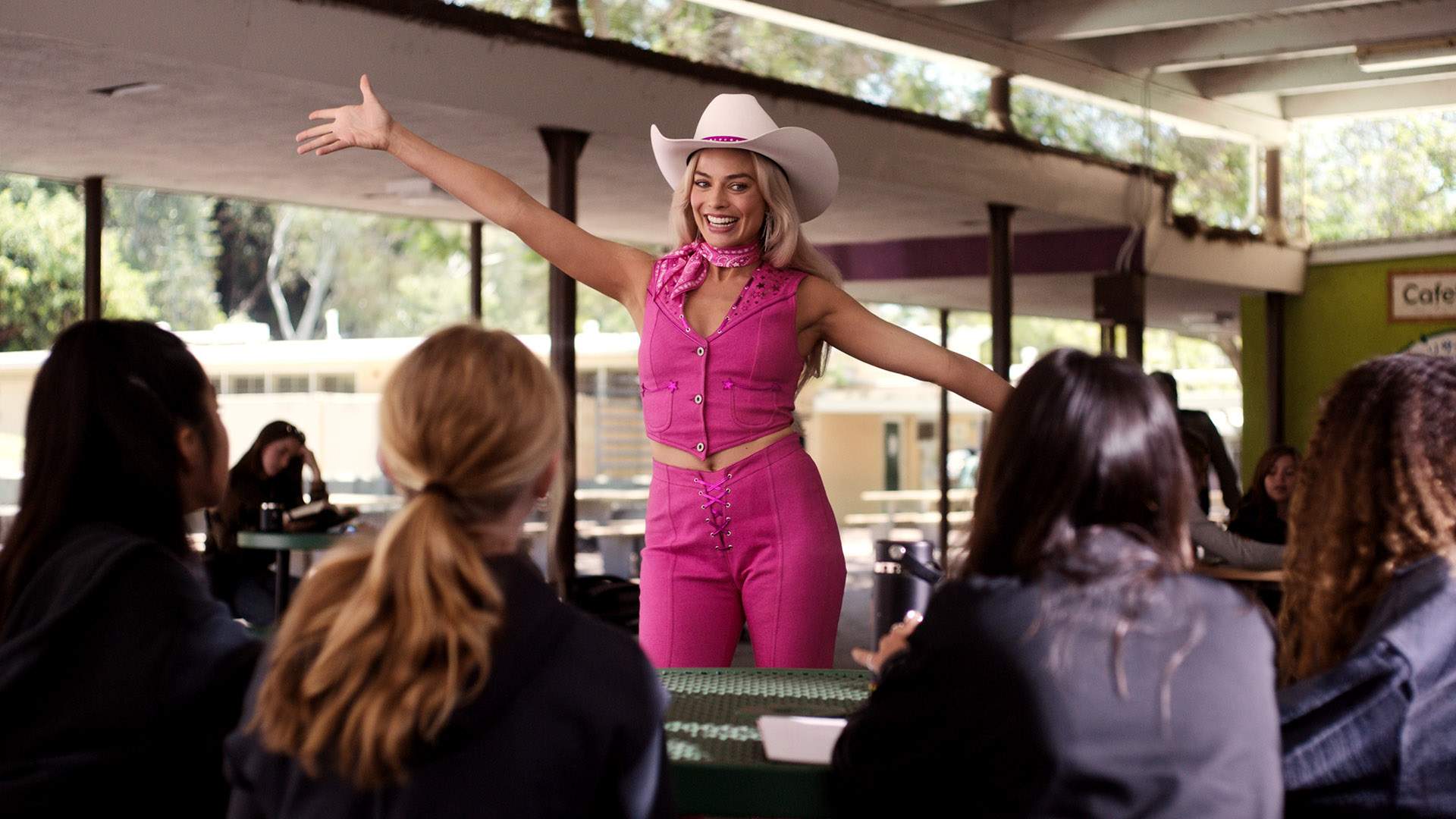Eight 2024 Golden Globe-Winning Films and TV Shows That You Can (and Should) Watch Right Now
Feel like watching a newly minted Golden Globe-winner? From movies such as 'Oppenheimer' to TV hits like 'The Bear', you've got options.
When a year ends, it's easy to pick what to watch. Just work through the best films of the past 12 months, the best movies that went straight to streaming over the same period, and the top new and returning TV shows. Or, catch up with flicks and series you might've missed — and others that are worth revisiting.
When a new year begins, it's also easy to choose where to point your eyeballs. Awards season kicks into gear, bringing with it more recommendations — all newly minted recipients of shiny trophies. So, now that the Golden Globes have taken place for 2024, as held on Monday, January 8 Australian time, there's a new batch of winners to spend time with on both the big and small screens.
To see some of this year's Golden Globe-recognised movies, you'll need to head to a cinema. For others — and for TV's best, too — you can get comfy on the couch to watch. Either way, here are eight of the Globes' top winners that you can check out right now.
(And if you're wondering what else won, you can read through the full list, too.)

MOVIE MUST-SEES
OPPENHEIMER
Cast Cillian Murphy and a filmmaker falls in love. Danny Boyle did with 28 Days Later and Sunshine, then Christopher Nolan followed with Batman Begins, The Dark Knight, The Dark Knight Rises, Inception and Dunkirk. There's an arresting, haunting, seeps-under-your-skin soulfulness about the Irish actor, never more so than when he was wandering solo through the empty zombie-ravaged streets in his big-screen big break, then hurtling towards the sun in an underrated sci-fi gem, both for Boyle, and now playing "the father of atomic bomb" in Nolan's epic biopic Oppenheimer. Flirting with the end of the world, or just one person's end, clearly suits Murphy. Here he is in a mind-blower as the destroyer of worlds — almost, perhaps actually — and so much of this can't-look-away three-hour stunner dwells in his expressive eyes. As J Robert Oppenheimer, those peepers see purpose and possibility. They spot quantum mechanics' promise, and the whole universe lurking within that branch of physics. They ultimately spy the consequences, too, of bringing the Manhattan Project successfully to fruition during World War II.
Dr Strangelove's full title could never apply to Oppenheimer, nor to its eponymous figure; neither learn to stop worrying and love the bomb. The theoretical physicist responsible for the creation of nuclear weapons did enjoy building it in Nolan's account, Murphy's telltale eyes gleaming as Oppy watches research become reality — but then darkening as he gleans what that reality means. Directing, writing and adapting the 2005 biography American Prometheus: The Triumph and Tragedy of J Robert Oppenheimer by Kai Bird and Martin J Sherwin, Nolan charts the before and after. He probes the fission and fusion of the situation in intercut parts, the first in colour, the second in black and white. In the former, all paths lead to the history-changing Trinity test on July 16, 1945 in the New Mexico desert. In the latter, a mushroom cloud balloons through Oppenheimer's life as he perceives what the gadget, as it's called in its development stages, has unleashed.
GLOBES
Won: Best Motion Picture — Drama, Best Director — Motion Picture (Christopher Nolan), Best Performance by a Male Actor in a Motion Picture — Drama (Cillian Murphy), Best Performance by a Male Actor in a Supporting Role in Any Motion Picture (Robert Downey Jr), Best Original Score — Motion Picture.
Where to watch it: Oppenheimer streams via Google Play, YouTube Movies, iTunes and Prime Video.
Read our full review.

POOR THINGS
Richly striking feats of cinema by Yorgos Lanthimos aren't scarce. Sublime performances by Emma Stone are hardly infrequent. Screen takes on Mary Shelley's Frankenstein couldn't be more constant. For Lanthimos, see: Dogtooth and Alps in the Greek Weird Wave filmmaker's native language, plus The Lobster, The Killing of a Sacred Deer and The Favourite since he started helming movies in English. With Stone, examples abound in her Best Actress Oscar for La La Land, supporting nominations before and after for Birdman or (The Unexpected Virtue of Ignorance) and Lanthimos' aforementioned regal satire, and twin 2024 Golden Globe nods for their latest collaboration as well as TV's The Curse. And as for the best gothic-horror story there is, not to mention one of the most influential sci-fi stories ever, the evidence is everywhere from traditional adaptations to debts owed as widely as The Rocky Horror Show and M3GAN. Combining the three results in a rarity, however: a jewel of a pastel-, jewel- and bodily fluid-toned feminist Frankenstein-esque fairy tale that's a stunning creation, as zapped to life with Lanthimos' inimitable flair, a mischievous air, Stone at her most extraordinary and empowerment blazing like a lightning bolt.
With cascading black hair, an inquisitive stare, incessant frankness and jolting physical mannerisms, Poor Things' star is Bella Baxter in this adaptation of Alasdair Grey's award-winning 1992 novel by Australian screenwriter Tony McNamara (The Great). Among the reasons that the movie and its lead portrayal are so singular: as a character with a woman's body revived with a baby's brain, Stone plays someone from infancy to adulthood, all with the astonishingly exact mindset and mannerisms to match, and while making every move, choice and feeling as organic as birth, living and death. In this fantastical steampunk vision of Victorian-era Europe, London-based Scottish doctor Godwin Baxter (Willem Dafoe, Asteroid City) is Bella's maker. Even if she didn't call him God, he's been playing it. But curiosity, the quest for agency and independence, horniness and a lust for adventure all beckon his creation on a radical, rebellious, gorgeously rendered, gloriously funny and generously insightful odyssey. So, Godwin tries to marry Bella off to medical student Max McCandles (Ramy Youssef, Ramy), only for her to discover masturbation and sex, and run off to the continent with caddish lawyer Duncan Wedderburn (Mark Ruffalo, She-Hulk: Attorney at Law).
GLOBES
Won: Best Motion Picture — Musical or Comedy, Best Performance by a Female Actor in a Motion Picture — Musical or Comedy (Emma Stone).
Where to watch it: Poor Things is currently screening in Australian cinemas.
Read our full review.

KILLERS OF THE FLOWER MOON
Death comes to Killers of the Flower Moon quickly. Death comes to Killers of the Flower Moon often. While Martin Scorsese will later briefly fill the film's frames with a fiery orange vision — with what almost appears to be a lake of flames deep in oil country, as dotted with silhouettes of men — death blazes through his 26th feature from the moment that the picture starts rolling. Adapted from journalist David Grann's 2017 non-fiction novel Killers of the Flower Moon: The Osage Murders and the Birth of the FBI, with the filmmaker himself and Dune's Eric Roth penning the screenplay, this is a masterpiece of a movie about a heartbreakingly horrible spate of deaths sparked by pure and unapologetic greed and persecution a century back. Scorsese's two favourite actors in Leonardo DiCaprio (Don't Look Up) and Robert De Niro (Amsterdam) are its stars, alongside hopefully his next go-to in Lily Gladstone (Reservation Dogs), but murder and genocide are as much at this bold and brilliant, epic yet intimate, ambitious and absorbing film's centre — all in a tale that's devastatingly true.
As Mollie Kyle, a member of the Osage Nation in Grey Horse, Oklahoma, incomparable Certain Women standout Gladstone talks through some of the movie's homicides early. Before her character meets DiCaprio's World War I veteran Ernest Burkhart — nephew to De Niro's cattle rancher and self-proclaimed 'king of the Osage' William King Hale — she notes that several Indigenous Americans that have been killed, with Mollie mentioning a mere few to meet untimely ends. There's nothing easy about this list, nor is there meant to be. Some are found dead, others seen laid out for their eternal rest, and each one delivers a difficult image. But a gun fired at a young mother pushing a pram inspires a shock befitting a horror film. The genre fits here, in its way, as do many others as Killers of the Flower Moon follows Burkhart's arrival in town, his deeds under his uncle's guidance, his romance with Mollie and the tragedies that keep springing: American crime saga, aka the realm that Scorsese has virtually made his own, as well as romance, relationship drama, western, true crime and crime procedural.
GLOBES
Won: Best Performance by an Actress in a Motion Picture — Drama (Lily Gladstone).
Where to watch it: Killers of the Flower Moon is currently screening in Australian cinemas, and streams via Google Play, YouTube Movies and Prime Video.
Read our full review, and our interview with Martin Scorsese.

THE BOY AND THE HERON
For much of the six years that a new Hayao Miyazaki movie was on the way, little was known except that the legendary Japanese animator was breaking his retirement after 2013's The Wind Rises. But there was a tentative title: How Do You Live?. While that isn't the name that the film's English-language release sports, both the moniker — which remains in Japan — and the nebulousness otherwise help sum up the gorgeous and staggering The Boy and the Heron. They also apply to the Studio Ghibli's co-founder's filmography overall. When a director and screenwriter escapes into imaginative realms as much as Miyazaki does, thrusting young characters still defining who they are away from everything they know into strange and surreal worlds, they ask how people exist, weather the chaos and trauma that's whisked their way, and bounce between whatever normality they're lucky to cling to and life's relentless uncertainties and heartbreaks. Miyazaki has long pondered how to navigate the fact that so little while we breathe proves a constant, and gets The Boy and the Heron spirited away by the same train of thought while climbing a tower of deeply resonant feelings.
How Do You Live? is also a 1937 book by Genzaburo Yoshino, which Miyazaki was given by his mother as a child, and also earns a mention in his 12th feature. The Boy and the Heron isn't an adaptation; rather, it's a musing on that query that's the product of a great artist looking back at his life and achievements, plus his losses. The official blurb uses the term "semi-autobiographical fantasy", an elegant way to describe a movie that feels so authentic, and so tied to its creator, even though he can't have charted his current protagonist's exact path. Parts of the story are drawn from his youth, but it wouldn't likely surprise any Studio Ghibli fan if Miyazaki had magically had his Chihiro, Mei and Satsuki, or Howl moment, somehow living an adventure from Spirited Away, My Neighbour Totoro or Howl's Moving Castle. What definitely won't astonish anyone is that grappling with conjuring up these rich worlds and processing reality is far from simple, even for someone of Miyazaki's indisputable creative genius.
GLOBES
Won: Best Motion Picture — Animated.
Where to watch it: The Boy and the Heron is currently screening in Australian cinemas.
Read our full review.

BARBIE
No one plays with a Barbie too hard when the Mattel product is fresh out of the box. As that new doll smell lingers, and the toy's synthetic limbs gleam and locks glisten, so does a child's sense of wonder. The more that the world-famous mass-produced figurine is trotted through DreamHouses, slipped into convertibles and decked out in different outfits, though — then given non-standard makeovers — the more that playing with the plastic fashion model becomes fantastical. Like globally beloved item, like live-action movie bearing its name. Barbie, the film, starts with glowing aesthetic perfection. It's almost instantly a pink-hued paradise for the eyes, and it's also a cleverly funny flick from its 2001: A Space Odyssey-riffing outset. The longer that it continues, however, the harder and wilder that Lady Bird and Little Women director Greta Gerwig goes, as does her Babylon and Amsterdam star lead-slash-producer Margot Robbie as Barbie.
In Barbie's Barbie Land, life is utopian. Robbie's Stereotypical Barbie and her fellow dolls (including The Gray Man's Ryan Gosling as Stereotypical Ken) genuinely believe that their rosy beachside suburban excellence is infectious, too. And, they're certain that this female-championing realm — and the Barbies being female champions of all skills, talents and appearances — has changed the real world inhabited by humans. But there's a Weird Barbie living in a misshapen abode. While she isn't Barbie's villain, not for a second, her nonconformist look and attitude says everything about Barbie at its most delightful. Sporting cropped hair, a scribbled-on face and legs akimbo, she's brought to life by Saturday Night Live great Kate McKinnon having a blast, and explained as the outcome of a kid somewhere playing too eagerly. Meet Gerwig's spirit animal; when she lets Weird Barbie's vibe rain down like a shower of glitter, covering everything and everyone in sight both in Barbie Land and in reality, the always-intelligent, amusing and dazzling Barbie is at its brightest and most brilliant.
GLOBES
Won: Cinematic and Box Office Achievement, Best Original Song — Motion Picture (Billie Eilish and Finneas O'Connell, 'What Was I Made For?').
Where to watch it: Barbie streams via Google Play, YouTube Movies, iTunes and Prime Video.
Read our full review, and Greta Gerwig, Margot Robbie, Issa Rae and America Ferrara chatting about the film.

SMALL-SCREEN STANDOUTS
BEEF
As plenty does, Beef starts with two strangers meeting, but there's absolutely nothing cute about it. Sparks don't fly and hearts don't flutter; instead, this pair grinds each other's gears. In a case of deep and passionate hate at first sight, Danny Cho (Steven Yeun, Nope) and Amy Lau (Ali Wong, Paper Girls) give their respective vehicles' gearboxes a workout, in fact, after he begins to pull out of a hardware store carpark, she honks behind him, and lewd hand signals and terse words are exchanged. Food is thrown, streets are angrily raced down, gardens are ruined, accidents are barely avoided, and the name of Vin Diesel's famous car franchise springs to mind, aptly describing how bitterly these two strangers feel about each other — and how quickly. Created by Lee Sung Jin, who has It's Always Sunny in Philadelphia, Dave and Silicon Valley on his resume before this ten-part Netflix and A24 collaboration, Beef also commences with a simple, indisputable and deeply relatable fact. Whether you're a struggling contractor hardly making ends meet, as he is, or a store-owning entrepreneur trying to secure a big deal, as she is — or, if you're both, neither or anywhere in-between — pettiness reigning supreme is basic human nature.
Danny could've just let Amy beep as much as she liked, then waved, apologised and driven away. Amy could've been more courteous about sounding her horn, and afterwards. But each feels immediately slighted by the other, isn't willing to stand for such an indignity and becomes consumed by their trivial spat. Neither takes the high road, not once — and if you've ever gotten irrationally irate about a minor incident, this new standout understands. Episode by episode, it sees that annoyance fester and exasperation grow, too. Beef spends its run with two people who can't let go of their instant rage, keep trying to get the other back, get even more incensed in response, and just add more fuel to the fire again and again until their whole existence is a blaze of revenge. If you've ever taken a small thing and blown it wildly out of proportion, Beef is also on the same wavelength. And if any of the above has ever made you question your entire life — or just the daily grind of endeavouring to get by, having everything go wrong, feeling unappreciated and constantly working — Beef might just feel like it was made for you.
GLOBES
Won: Best Television Limited Series of Motion Picture Made for Television, Best Performance by a Female Actor in a Limited Series or a Motion Picture Made for Television (Ali Wong), Best Performance by a Male Actor in a Limited Series or a Motion Picture Made for Television (Steven Yeun).
Where to watch it: Beef streams via Netflix.
Read our full review.

SUCCESSION
Endings have always been a part of Succession. Since it premiered in 2018, the bulk of the HBO drama's feuding figures have been waiting for a big farewell. The reason is right there in the title, because for any of the Roy clan's adult children to scale the family company's greatest heights and remain there — be it initial heir apparent Kendall (Jeremy Strong, Armageddon Time), his inappropriate photo-sending brother Roman (Kieran Culkin, Scott Pilgrim Takes Off), their political-fixer sister Siobhan (Sarah Snook, Pieces of a Woman), or eldest sibling and presidential candidate Connor (Alan Ruck, The Dropout) — their father Logan's (Brian Cox, Remember Me) tenure needed to wrap up. The latter was always stubborn. Proud, too, of what he'd achieved and the power it's brought. And whenever Logan seemed nearly ready to leave the business behind, he held on. If he's challenged or threatened, as happened again and again in the Emmy-winning series, he fixed his grasp even tighter.
Succession was always been waiting for Logan's last stint at global media outfit Waystar RoyCo, but it had never been about finales quite the way it was in its stunning fourth season. This time, there was ticking clock not just for the show's characters, but for the stellar series itself, given that this is its last go-around — and didn't it make the most of it. Nothing can last forever, not even widely acclaimed hit shows that are a rarity in today's TV climate: genuine appointment-viewing. So, this went out at the height of its greatness, complete with unhappy birthday parties, big business deals, plenty of scheming and backstabbing, and both Shiv's husband Tom Wambsgans (Matthew Macfadyen, Operation Mincemeat) and family cousin Greg (Nicholas Braun, Cat Person) in vintage form — plus an early shock, at least two of the best episodes of any show that've ever aired on television, one of the worst drinks, a phenomenal acting masterclass, a The Sopranos-level final shot and the reality that money really can't buy happiness.
GLOBES
Won: Best Television Series — Drama, Best Performance by a Male Actor in a Television Series — Drama (Kieran Culkin), Best Performance by a Female Actor in a Television Series — Drama (Sarah Snook), Best Performance by a Male Actor in a Supporting Role on Television (Matthew Macfadyen).
Where to watch it: Succession streams via Binge.
Read our full review.

THE BEAR
The more time that anyone spends in the kitchen, the easier that whipping up their chosen dish gets. The Bear season two is that concept in TV form, even if the team at The Original Beef of Chicagoland don't always live it as they leap from running a beloved neighbourhood sandwich joint to opening a fine-diner, and fast. The hospitality crew that was first introduced in the best new show of 2022 isn't lacking in culinary skills or passion. But when bedlam surrounds you constantly, as bubbled and boiled through The Bear's Golden Globe-winning, Emmy-nominated season-one frames, not everything always goes to plan. That was only accurate on-screen for Carmen 'Carmy' Berzatto (Jeremy Allen White, Fingernails) and his colleagues — aka sous chef Sydney (Ayo Edebiri, Bottoms), baker-turned-pastry chef Marcus (Lionel Boyce, Hap and Leonard), veteran line cooks Tina (Liza Colón-Zayas, In Treatment) and Ebraheim (Edwin Lee Gibson, Fargo), resident Mr Fixit Neil Fak (IRL chef Matty Matheson), and family pal Richie aka Cousin (Ebon Moss-Bachrach, No Hard Feelings). For viewers, the series' debut run was as perfect a piece of television as anyone can hope for. Excellent news: season two is better.
The Bear serves up another sublime course of comedy, drama and "yes chef!"-exclaiming antics across its sizzling second season. Actually make that ten more courses, one per episode, with each new instalment its own more-ish meal. A menu, a loan, desperately needed additional help, oh-so-much restaurant mayhem: that's how this second visit begins, as Carmy and Sydney endeavour to make their dreams for their own patch of Chicago's food scene come true. So far, so familiar, but The Bear isn't just plating up the same dishes this time around. At every moment, this new feast feels richer, deeper and more seasoned, including when it's as intense as ever, when it's filling the screen with tastebud-tempting food shots that relish culinary artistry, and also when it gets meditative. Episodes that send Marcus to a Noma-esque venue in Copenhagen under the tutelage of Luca (Will Poulter, Guardians of the Galaxy Vol. 3), get Richie spending a week learning the upscale ropes at one of Chicago's best restaurants and jump back to the past, demonstrating how chaos would've been in Carmy's blood regardless of if he became a chef, are particularly stunning.
GLOBES
Won: Best Television Series — Musical or Comedy, Best Performance by a Male Actor in a Television Series — Musical or Comedy (Jeremy Allen White), Best Performance by a Female Actor in a Television Series — Musical or Comedy (Ayo Edebiri).
Where to watch it: The Bear streams via Disney+.
Read our full review.
